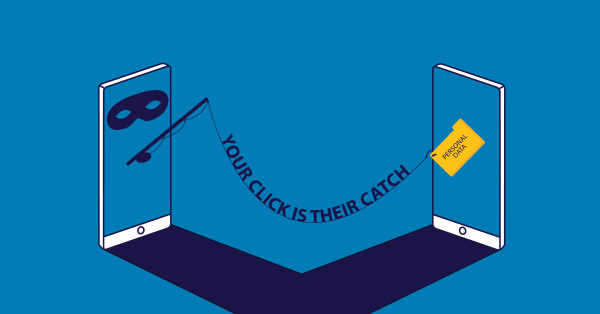Don’t Let These Six Cybercriminals Fool You!
 It’s April Fool’s Day! Enjoy your tricks, but don’t be fooled by a cybercriminal this year.
It’s April Fool’s Day! Enjoy your tricks, but don’t be fooled by a cybercriminal this year.
Watch for these six types of cybercriminals and protect yourself from being fooled by their tactics.
Hackers & Hacktivists
Hackers look for weaknesses in computer or network systems, so they can gain unauthorized access to your data. They look for personal, corporate and government information. Hacktivists are a type of hacker that try to gain access to systems in support of political causes. They target organizations who don’t align with their political views.
Identity Thieves
Identity thieves try to steal your personal information to commit fraud or theft. They often use malware, such as trojans or spyware. They also use phishing emails that are designed to get you to click a malicious link or attachment.
Scammers
Scammers use deceptive schemes to trick you into giving them money or other valuables. They often target individuals who are not tech-savvy. They use emails, phone calls and text messages to trick victims.
Social Engineers
Social engineers also target you by email, phone, or even in-person in hopes of obtaining a password or banking information. They often pose as a customer service agent or other type of employee to gain your confidence. Once they have your information, they can profit by selling it or setting up accounts in your name.
Cyberterrorists
Cyberterrorists attempt to create large-scale disruption for governments, businesses, and other organizations. They use a variety of tools such as phishing, malicious software, viruses and programming scripts. Their goals are to disrupt the organization’s operations or create panic.
Disgruntled Employees
It may be difficult to imagine an employee would damage your organization’s network or steal data, but they have access to your systems and can do damage in a number of ways. As organizations automate more processes, this becomes an even bigger threat.
How to Protect Yourself
You can secure your computer or network from these types of cybercriminals in the following ways:
- Secure your computer or network with a firewall
- Use complex passwords and MFA (multi-factor authentication) and never give out your password
- Regularly update your OS, apps and browser
- Install antivirus software
- Don’t click on links or attachments you aren’t expecting
- Make sure all callers and text messages are from legitimate organizations
Be #CyberAware about your online activities, your digital devices and your property.
Stay safe online with more information from the National Cybersecurity Alliance.
Another way to protect yourself from cyberthreats is keep digital devices clean. Read our spring cleaning tips for digital devices!
